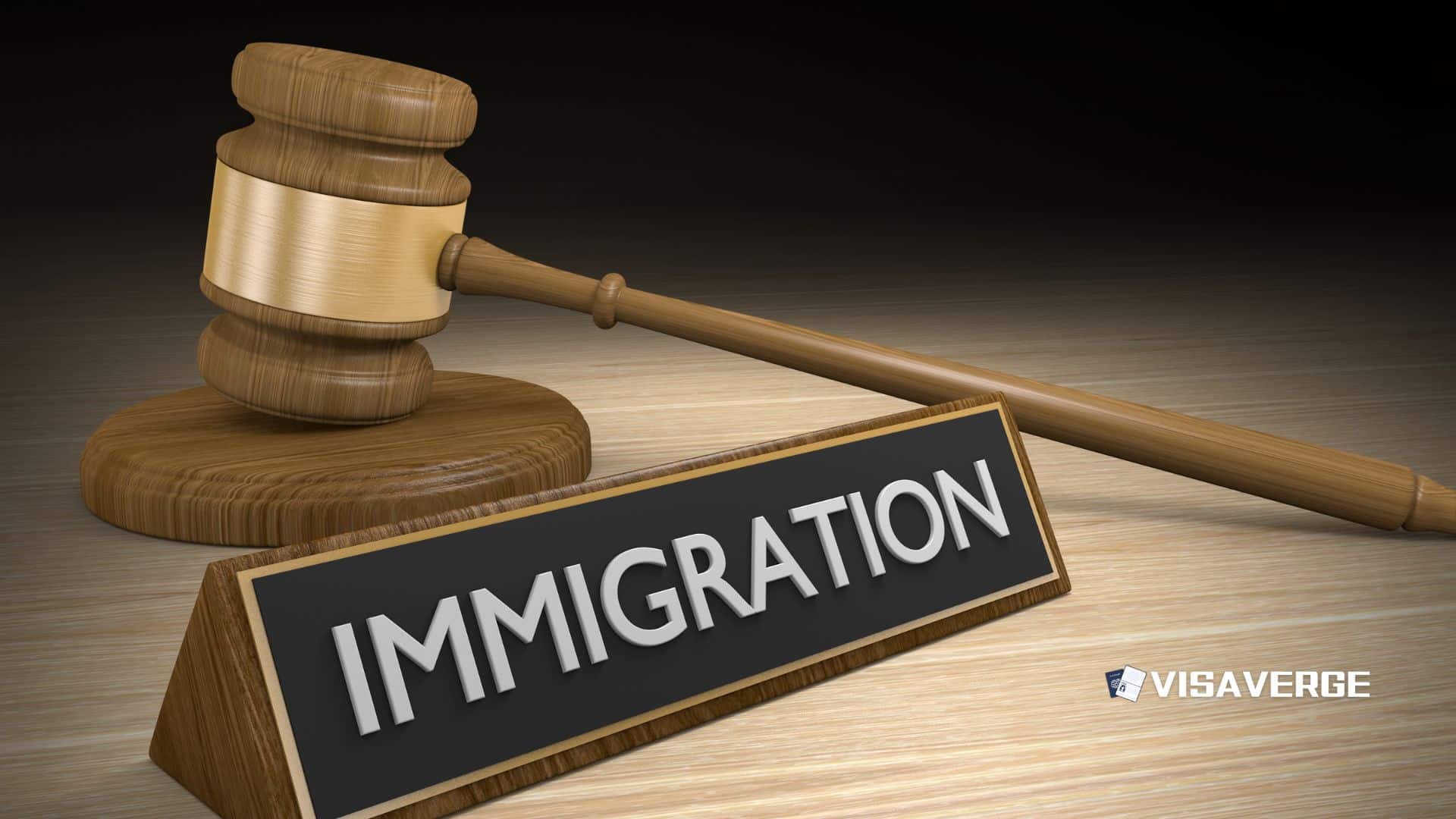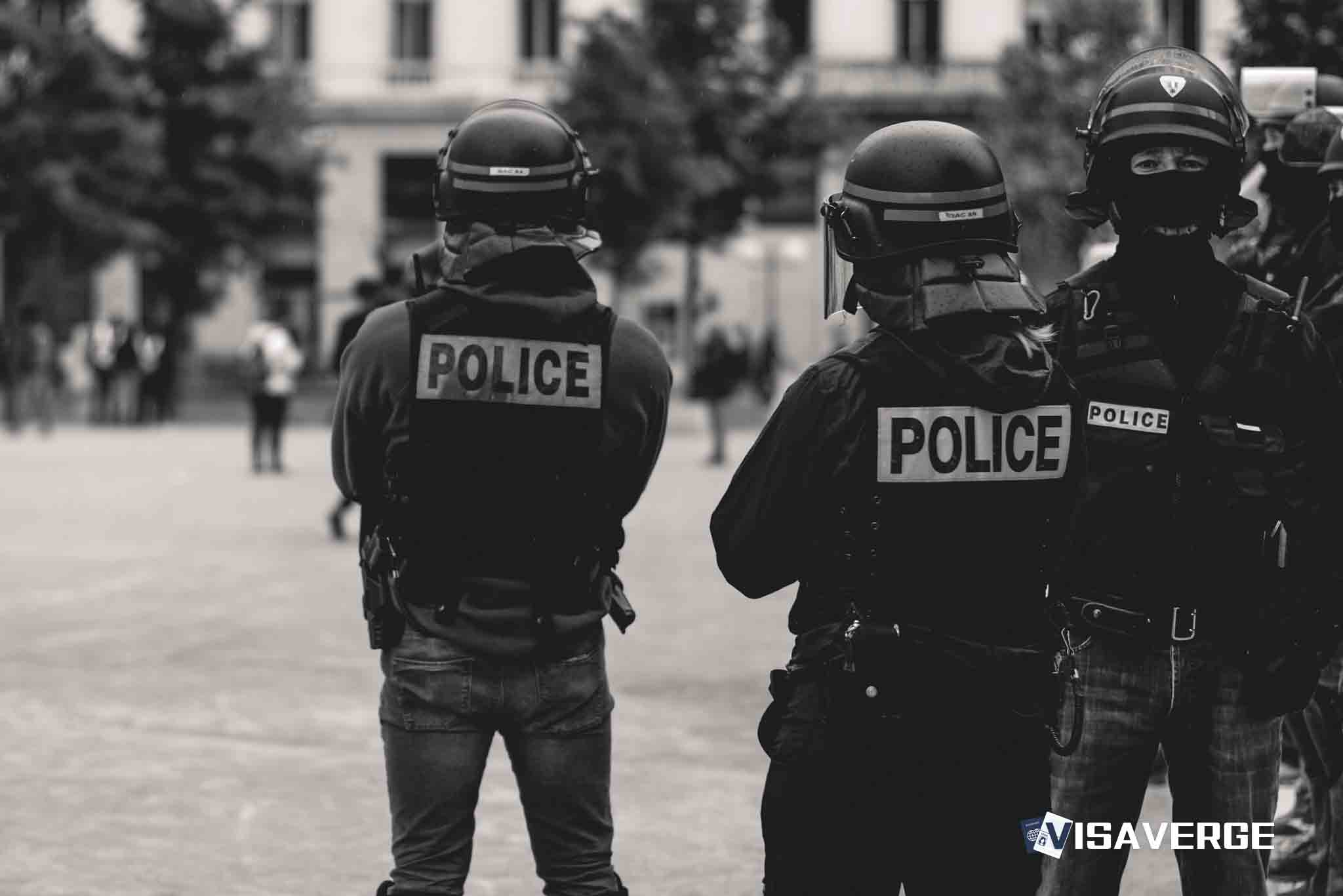Key Takeaways
• In May 2025, ICE arrests surged inside Chicago’s immigration courts targeting many without criminal records.
• Trump administration lifted protections on sensitive locations, allowing ICE to arrest inside courthouses.
• Most arrested individuals are asylum seekers or migrants without legal representation, raising due process concerns.
Federal Immigration Arrests Surge Inside Chicago’s Immigration Courts, Sparking Widespread Fear
In May 2025, a sharp increase in arrests by U.S. Immigration and Customs Enforcement (ICE) agents inside and around Chicago’s immigration courts has sent shockwaves through the city’s immigrant communities. Attorneys, advocates, and local officials are raising alarms about the impact of these enforcement actions, which have targeted not only those with criminal records but also asylum seekers, people with no criminal history, and individuals without legal representation. This escalation follows a significant policy shift under the Trump administration, which has removed previous restrictions on immigration enforcement at sensitive locations such as courthouses.

What’s Happening: Arrests Inside and Outside Immigration Courts
Over the past week, attorneys and reporters have confirmed a surge in ICE arrests at immigration courts in major cities across the United States, including Chicago, Los Angeles, Phoenix, New York, Seattle, Miami, and several locations in Texas. According to the American Immigration Lawyers Association (AILA), the number of detentions at or near immigration courthouses spiked sharply on Tuesday, May 20, 2025.
Who is being targeted?
Unlike past practices, these arrests are not limited to individuals with criminal convictions or those whose asylum claims have been denied. ICE agents are now detaining:
- People with no criminal records
- Migrants without legal representation
– Individuals actively seeking asylum
This marks a dramatic change from previous enforcement strategies, where arrests at or near court facilities were rare and generally focused on those with serious criminal charges.
Why the Change? Policy Shifts and Federal Directives
The Trump administration’s renewed focus on immigration enforcement has led to the removal of protections for “sensitive locations.” Since January 21, 2025, federal officials have allowed ICE and Customs and Border Protection (CBP) agents to conduct arrests at or near places previously considered off-limits, including courthouses, schools, and hospitals.
Key policy changes include:
- Lifting of Sensitive Location Protections: Under previous administrations, ICE avoided enforcement actions at places like courthouses to protect due process and encourage cooperation with law enforcement.
- Court Dismissals and Immediate Arrests: Government attorneys have reportedly been instructed to dismiss certain immigration cases, knowing that ICE agents are waiting to arrest those individuals as soon as they leave the courtroom. This tactic is intended to speed up detentions and removals.
- Fast-Track Deportation Authority: ICE has stated that it is detaining people subject to expedited removal, a process that allows for quick deportation without a full hearing.
The Justice Department’s Executive Office for Immigration Review (EOIR), which oversees immigration courts, has referred all questions about these arrests to the Department of Homeland Security (DHS). ICE has confirmed the new enforcement strategy but has not provided detailed public statements.
The Scale of the Problem: Data and Statistics
Immigration court backlogs and enforcement numbers highlight the scope of the issue:
- National Backlog: As of March 2025, there were 3,629,627 cases pending in immigration courts across the United States.
- New and Completed Cases: In the first half of fiscal year 2025, 349,165 new cases were filed, and 460,682 cases were completed.
- Criminal Activity: Only 1.17% of new cases involved deportation orders based on criminal activity beyond illegal entry, according to TRAC Immigration Data.
- Chicago-Specific Enforcement: In January 2025, about 100 people were detained in the Chicago area during increased enforcement operations. Bloomberg reported that 260 people were targeted in a single day, with only seven having criminal arrest warrants.
- Recent Arrests: ICE’s Chicago Field Office reported 44 arrests during a targeted operation between October 23 and November 3, 2024, focusing on people with criminal convictions or final removal orders.
These numbers show that the majority of those caught up in recent enforcement actions are not dangerous criminals, but rather individuals whose only offense may be entering or remaining in the country without authorization.
How the Arrests Happen: Step-by-Step Process
Attorneys and advocates have described a new pattern of enforcement inside Chicago’s immigration courts:
- Arrival for Court: Immigrants arrive at court for scheduled hearings, often accompanied by family or legal counsel.
- Case Dismissal: Government attorneys may move to dismiss certain cases, sometimes without clear explanation.
- ICE Agents Wait: ICE agents, often in plain clothes, wait in hallways or just outside the courthouse.
- Immediate Arrest: As soon as the hearing ends or the case is dismissed, ICE agents approach and arrest the individual.
- Processing: Detainees are then taken for expedited removal or further detention.
This process has created a climate of fear and uncertainty, with many immigrants now afraid to attend their own court hearings.
Impact on Chicago’s Immigrant Community
The presence of ICE agents in and around immigration courts has had immediate and far-reaching effects on Chicago’s immigrant population:
- Chilling Effect on Court Attendance: Many immigrants are now too afraid to appear for scheduled hearings, increasing the risk of being ordered deported in absentia (without being present).
- Family Separation: Families worry that attending court could lead to sudden separation if a loved one is arrested.
- Reduced Access to Services: Fear of arrest has led to decreased attendance at schools, workplaces, and medical appointments.
- Economic Impact: Local businesses report a drop in clientele as immigrants avoid public places.
- Community Tension: Community organizations are struggling to reassure residents and maintain trust.
According to analysis by VisaVerge.com, these enforcement actions are likely to undermine public safety by discouraging cooperation with law enforcement and making immigrants less likely to report crimes or seek help.
Legal and Ethical Concerns
Attorneys and advocates argue that the new enforcement tactics violate the spirit of due process and may amount to government misconduct. Key concerns include:
- Due Process Violations: By arresting people who are actively seeking legal relief or have pending asylum claims, ICE may be denying them a fair chance to present their case.
- Targeting Non-Criminals: The majority of those arrested have no criminal history, raising questions about the stated focus on public safety.
- Deterring Legal Participation: The fear of arrest at court discourages immigrants from participating in the legal process, undermining the integrity of the immigration system.
Immigration attorneys are preparing legal challenges to these arrests, especially in cases involving due process violations or the targeting of vulnerable individuals.
Local and Federal Responses
Local officials in Chicago have tried to reassure residents, but their ability to intervene is limited.
- Chicago’s “Welcoming City” Ordinance: Mayor Brandon Johnson and Police Superintendent Larry Snelling emphasize that Chicago’s policies are designed to protect undocumented immigrants from local law enforcement cooperation with federal immigration authorities. However, federal agents are not bound by local ordinances.
- Federal Agencies: ICE and DHS have not provided detailed public statements about the recent courthouse arrests, but internal sources confirm the new enforcement strategy.
- Attorneys and Advocates: The American Immigration Lawyers Association (AILA) and other advocates have condemned the tactics, warning that they will deter immigrants from attending court hearings and seeking legal relief.
Multiple Perspectives: Stakeholder Concerns
| Stakeholder | Perspective/Concern |
|---|---|
| Immigrants & Families | Fear of arrest, family separation, reluctance to attend court or seek services |
| Attorneys & Advocates | Due process violations, chilling effect, undermining legal rights |
| Local Officials (Chicago) | Attempting to reassure community, limited ability to intervene |
| Federal Agencies (ICE/DHS) | Emphasize public safety, but actions target broader population |
| Business Community | Economic impact from decreased consumer activity |
Example Scenario:
Maria, a mother of two and long-time Chicago resident, had a scheduled hearing at the immigration court to present her asylum claim. Upon arrival, she noticed unfamiliar individuals in the hallway. After her hearing was dismissed, she was approached by ICE agents and arrested in front of her children. Maria had no criminal record and was actively cooperating with the legal process. Her family now faces separation, and her children are afraid to attend school.
Historical Context: How Did We Get Here?
Sensitive Locations Policy:
For years, ICE generally avoided enforcement actions at sensitive locations, including courthouses, to protect due process and encourage cooperation with law enforcement. This policy was designed to ensure that immigrants could seek justice, attend court, and access essential services without fear of arrest.
Sanctuary City Status:
Chicago’s sanctuary city policies limit local cooperation with federal immigration enforcement, but federal agents are not required to follow local ordinances. This has created tension between city officials and federal agencies.
Escalation in 2025:
The Trump administration’s return to office in January 2025 brought a renewed focus on mass deportation, including the removal of sensitive location protections and the imposition of arrest quotas for ICE agents. These changes have led to the current surge in courthouse arrests.
The Road Ahead: What’s Next for Chicago’s Immigrants?
Continued Enforcement:
ICE is expected to continue and possibly expand courthouse arrests as part of broader mass deportation efforts. The chilling effect on court attendance and community participation is likely to intensify.
Legal Challenges:
Attorneys are preparing to challenge the legality of these arrests, particularly in cases involving due process violations or targeting of non-criminals and asylum seekers. Lawsuits may focus on constitutional protections and the right to a fair hearing.
Policy Debates:
Debate at the federal and local levels about the balance between immigration enforcement and protection of civil liberties is expected to intensify. Advocacy groups are calling for the restoration of sensitive location protections and greater oversight of ICE activities.
Practical Guidance for Immigrants in Chicago
If you have a scheduled hearing at Chicago’s immigration court:
- Consult an Attorney: Seek legal advice before attending court. The American Immigration Lawyers Association (AILA) can help you find qualified representation.
- Know Your Rights: You have the right to remain silent and to speak with an attorney before answering questions from ICE agents.
- Plan Ahead: If possible, arrange for someone to accompany you to court and have a plan in case of arrest.
- Stay Informed: Monitor updates from trusted community organizations and legal service providers.
For more information about Chicago’s immigration court and ICE contact details:
- Chicago Immigration Court (Detained) – Executive Office for Immigration Review
- ICE Chicago Field Office Contact Information
Conclusion: Far-Reaching Consequences for Chicago
The recent surge in ICE arrests inside and around Chicago’s immigration courts represents a significant escalation in federal immigration enforcement. The removal of sensitive location protections and the adoption of new enforcement tactics have generated widespread fear, legal controversy, and practical challenges for immigrants, their families, and the broader community. Attorneys, advocates, and local officials are mobilizing to respond, but the immediate and long-term impacts are already being felt across Chicago.
Key Takeaways:
- Arrests inside immigration courts are now common in Chicago, targeting a broad range of immigrants.
- Policy changes under the Trump administration have removed previous protections for sensitive locations.
- The majority of those arrested have no criminal history, raising concerns about due process and fairness.
- Community fear is leading to reduced court attendance, family separation, and economic hardship.
- Legal challenges and policy debates are expected to continue as stakeholders seek to protect civil liberties and ensure fair treatment for all.
For up-to-date information on immigration court procedures and your rights, visit the Executive Office for Immigration Review and consult with a qualified immigration attorney.
Learn Today
ICE (Immigration and Customs Enforcement) → Federal agency enforcing immigration laws, including detaining and deporting unauthorized migrants.
Sensitive Locations → Places like courthouses and schools where ICE traditionally limited enforcement to protect access to justice.
Due Process → Legal principle guaranteeing fair treatment through the judicial system, including rights to hearings and counsel.
Expedited Removal → A fast-track deportation process allowing quick removal without a full immigration hearing.
Asylum Seeker → An individual requesting protection in the U.S. due to fear of persecution in their home country.
This Article in a Nutshell
In Chicago, May 2025 saw a spike in ICE arrests inside immigration courts. This unprecedented enforcement targets asylum seekers and those without criminal records, creating widespread fear. Policy changes removed courthouse protections, causing many immigrants to avoid court. Legal challenges arise over due process, highlighting critical tensions in U.S. immigration enforcement today.
— By VisaVerge.com
Read more:
• Cathay Pacific to restart Adelaide service from November 11, 2025
• American Airlines adds tequila and new buy-on-board choices in cabins
• Deportation debate grows as European Commission defends language choice
• Putnam County keeps 287(g) program partnership with ICE in place
• ICE Halts Courthouse Arrests in Seattle After Dismissals













